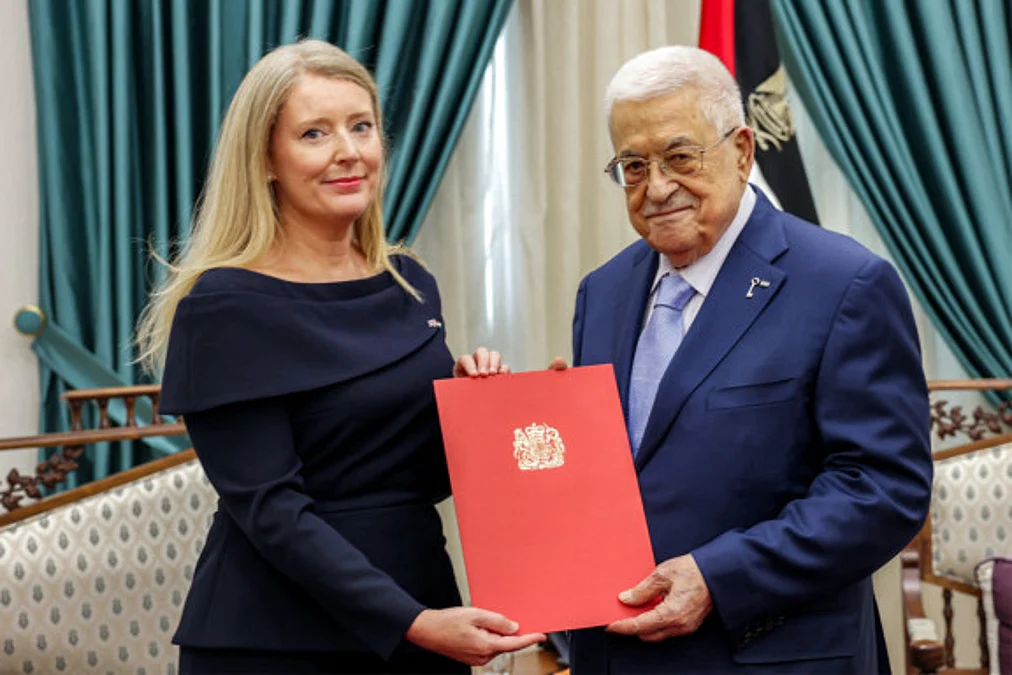By Stephen N R
Copyright gulfnews

Dubai: Britain, Canada and Australia formally recognised Palestine on Sunday, joining Portugal in a coordinated diplomatic move ahead of the UN General Assembly in New York. France is expected to announce recognition during the gathering that begins Tuesday..It marks the first time G7 powers — the UK and Canada — have taken the step, reflecting mounting global anger over Israel’s war in Gaza..Why is this happening now?.Governments long argued recognition should come only as part of a peace deal with Israel. But the scale of destruction in Gaza, allegations of genocide, and a sharp shift in public opinion have forced the issue. Leaders say without recognition, the two-state solution risks vanishing..Britain must atone for the Balfour declaration and a century of suffering.How does this affect the two-state solution?.Supporters argue recognition is the only way to keep the two-state solution viable. By acknowledging Palestine, they hope to place it on equal diplomatic footing with Israel and revive a framework eroded by war and settlement expansion. Critics say recognition changes little on the ground, but backers insist the symbolism is crucial: without it, the two-state vision could collapse..UAE’s Anwar Gargash: UN recognition of Palestine key to two-state solution.What is a state under international law?.The Montevideo Convention of 1933 defines four criteria:.• A permanent population.• Defined territory.• An effective government.• The ability to conduct international relations.Recognition means other countries believe these conditions are broadly met, even if borders remain disputed..Which countries recognise Palestine? Understanding what statehood recognition means.Does Palestine qualify?.Palestine has diplomatic missions abroad, takes part in international organisations, and fields Olympic teams. It issues passports and the Palestinian Authority runs services in parts of the West Bank. But it lacks control of its borders, has no army, and Gaza is ruled by Hamas under Israeli blockade. This “partial” statehood is why recognition carries heavy symbolism..Is recognition just symbolic?.Recognition does not end Israel’s occupation or immediately improve daily life. But it has political and legal effects:.• Boosts Palestine’s legitimacy and standing.• Places it on more equal footing with Israel in talks.• Opens doors to trade, aid and cooperation.• Increases pressure on Israel in international forums.Some diplomats say it could also lead to bans on products from Israeli settlements in occupied territory..How does the UN fit in?.Palestine currently holds Permanent Observer status at the UN, which allows participation but no voting rights. Full membership requires:.• Security Council approval: at least nine votes in favour, with no veto from the US, UK, France, Russia or China..• General Assembly vote: two-thirds majority of member states..In 2011, a Palestinian bid stalled at the Security Council. Most recently, on September 18, 2025, the US vetoed a resolution calling for a Gaza ceasefire and hostage release, showing Washington remains the key obstacle..How a state joins the UN.1. Apply to the UN Secretary-General..2. Win Security Council backing (9 votes, no veto)..3. Secure a two-thirds General Assembly majority..4. Gain full membership and voting rights..How has Israel responded?.Israel rejects unilateral recognition, calling it a reward for Hamas. Prime Minister Benjamin Netanyahu branded the latest moves “an absurd reward for terrorism” and insists Palestinian statehood must come only through direct negotiations..Where do major powers stand?.• China and Russia recognised Palestine in 1988..• India and most of the Global South also recognise it..• The US remains the biggest obstacle, using its veto to block Palestinian membership..With the UK, Canada and soon France on board, four of the Security Council’s five permanent members will recognise Palestine — leaving Washington isolated..What’s next?.Recognition by Western powers may not immediately change realities in Gaza or the West Bank, but it marks a watershed diplomatic moment..For Palestinians, it validates a long-denied right to self-determination. For Israel and the US, it signals growing isolation as even their closest allies shift stance..What wider recognition of Palestine would mean.2025 (September):.• United Kingdom – First G7 country to formally recognise Palestine.• Canada – Joined the UK as a G7 recogniser.• Australia – Recognition announced alongside UK and Canada.• Portugal – Declared recognition ahead of UN General Assembly.• France – Expected to announce recognition at UNGA.2024:.• Spain – Recognition tied to Gaza war and push for two-state solution.• Ireland – Coordinated recognition with Spain and Norway.• Norway – Early mover in Europe’s shift.Earlier notable recognitions:.• Sweden (2014) – First major EU country to recognise Palestine.• Vatican (2015) – Recognition framed in terms of peace and justice.Total so far: Over 150 of the UN’s 193 members now recognise Palestine, including four of the five permanent Security Council members. The US remains the only holdout.